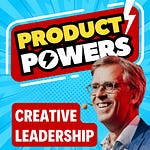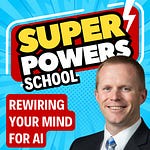How Career Storytelling Shapes Our Identities
Ricardo Brito shares insights on the power of storytelling in making sense of our career and working identity. The discussion delves into the science behind storytelling, cultural differences in professional roles, and how personal stories shape our professional lives.
Contents
The Neuroscience Behind Storytelling
The Superpower of Storytelling
The Importance of Storytelling in Career Transitions
Understanding Our Stories
Exercises to Develop Your Storytelling Skills
The Impact of Storytelling on Tech Professionals
Embracing Your Unique Story
Conclusion: Making the Most of Storytelling
Recommended Resources
FAQ
🧠 The Neuroscience Behind Storytelling
Ricardo opens the conversation by highlighting the neuroscience behind storytelling. He explains how humans are wired to understand and retain information more effectively through stories than through mere facts. Our brains can process complex narratives and derive meaning from them, making storytelling an essential tool for learning and personal growth.
💪 The Superpower of Storytelling
Storytelling, as Ricardo points out, is a superpower that can help individuals make sense of their careers, work identities, and even future-proof themselves in an AI-dominated world. By crafting and reflecting on the stories we tell about ourselves, we can better understand our strengths, weaknesses, and unique value propositions. This self-awareness can significantly influence career decisions and opportunities.
🔄 The Importance of Storytelling in Career Transitions
Ricardo shares his career journey, which includes moving from fine arts to UX design and eventually to coaching. His journey is a testament to the power of storytelling in career transitions. He shares how he had to reinvent himself multiple times and how understanding and sharing his own story helped him navigate these transitions. By adapting and tailoring his narrative to different audiences, Ricardo was able to demonstrate his value and secure new opportunities.
📝 Understanding Our Stories
Ricardo encourages us to reflect on the stories we tell about ourselves and their impact on our self-esteem and career choices. He believes that by expanding our understanding of our own stories, we can unlock new opportunities and navigate our careers more intentionally. This process involves mapping out our experiences, identifying recurring themes, and recognizing the skills and value we bring to the table.
🦸♂️ Exercises to Develop Your Storytelling Skills
Ricardo shares an exercise he created to help individuals develop their storytelling skills: the superhero exercise. This involves drawing a superhero based on your superpowers, which helps create distance and make the process playful. He also emphasizes the importance of conducting a career retrospective, where you document every job and project you've done, the value you've brought, and the skills you've developed. This process can reveal patterns and help you craft a compelling narrative about your career.
💻 The Impact of Storytelling on Tech Professionals
Ricardo and Paddy discuss the relevance of storytelling for tech professionals. They agree that while technical skills are essential, the ability to tell a compelling story about oneself and one's work can greatly enhance career prospects. Storytelling can help tech professionals make sense of their experiences, communicate their value, and adapt to the rapidly changing industry.
🌟 Real-Life Impact
Ricardo shares a recent success story of a client who, through storytelling, realized they had extensive experience in people management, even though it wasn't officially part of their job title. This revelation opened up new career opportunities and helped the client reposition themselves in the job market.
🧐 The Value of Reflection
One of the key takeaways from the conversation is the value of reflection in storytelling. By regularly reflecting on our experiences and the stories we tell ourselves, we can gain clarity, make peace with past challenges, and use these insights to shape our future.
🌟 Embracing Your Unique Story
Paddy shares his own experiences and reflections, emphasizing the importance of embracing one's unique story and culture. He encourages readers to bring their whole selves to work and to value the diverse perspectives and experiences they bring to the table.
🏆 Conclusion: Making the Most of Storytelling
The episode concludes with a powerful message about the importance of storytelling in our professional lives. In a world where hard skills often take precedence, Ricardo and Paddy remind us that storytelling is a timeless human skill that can help us navigate our careers, connect with others, and adapt to change. By reflecting on and sharing our stories, we can unlock new opportunities and create meaningful careers.
📚 Recommended Resources
To further explore the art of storytelling and its impact on careers, Ricardo recommends the following resources:
Working Identity by Herminia Ibarra: A book that explores career transitions and the role of identity.
The Storytelling Animal by Jonathan Gottschall: A book that delves into the neuroscience and psychology of storytelling.
For those interested in practical tools, Ricardo also offers a free Career Storytelling Kit which includes a webinar to help you get started on your storytelling journey.
Embrace the power of storytelling to make sense of your career, connect with others, and navigate the ever-evolving world of work. Your story is your superpower – use it wisely.
❓ FAQ
What is the main benefit of storytelling in a professional context?
Storytelling helps individuals make sense of their experiences and communicate their value effectively, which can significantly enhance career prospects and personal growth.
How can I start developing my storytelling skills?
Begin by reflecting on your experiences, mapping out your career, and identifying recurring themes and skills. Exercises like Ricardo's superhero exercise can also help.
Why is storytelling more effective than presenting facts?
Our brains are wired to process and retain narratives better than isolated facts. Stories create emotional connections and make information more memorable and impactful.
How can storytelling help me in an AI-driven job market?
Storytelling highlights uniquely human skills like empathy, creativity, and complex problem-solving, which are difficult for AI to replicate. It helps individuals stand out and adapt in a rapidly changing work environment.
Ricardo Brito
Ricardo Brito is a career and life coach with a unique approach: helping people pave their way to personal and professional fulfilling balance through what he calls the PATH Method. Ricardo’s journey began back in 2021, when deeply entrenched in the corporate tech world as a UX design lead he found himself battling burnout, disillusionment, and defeat. The turning point came when he reached a breaking point and sought medical help, realizing that something needed to change. This led him on an unexpected path of rediscovering himself through therapy, coaching, and experimentation. As he delved into coaching, Ricardo found a renewed sense of purpose and direction, ultimately choosing to downgrade his role in the corporate world. This decision brought him a profound revelation - that his self-worth was not tied to his title or status, but rather in the impact he made and the quality of his work… and more than products or businesses, it was always about the people and their growth. Through his own journey, Ricardo developed a unique approach to help others navigate professional transitions and transformations, culminating in the creation of the PATH Method.
Ricardo’s links:
https://www.ricardobrito.me/gift
https://www.linkedin.com/in/ribrito/













